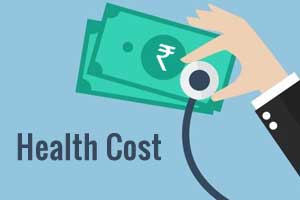- Home
- Medical news & Guidelines
- Anesthesiology
- Cardiology and CTVS
- Critical Care
- Dentistry
- Dermatology
- Diabetes and Endocrinology
- ENT
- Gastroenterology
- Medicine
- Nephrology
- Neurology
- Obstretics-Gynaecology
- Oncology
- Ophthalmology
- Orthopaedics
- Pediatrics-Neonatology
- Psychiatry
- Pulmonology
- Radiology
- Surgery
- Urology
- Laboratory Medicine
- Diet
- Nursing
- Paramedical
- Physiotherapy
- Health news
- Fact Check
- Bone Health Fact Check
- Brain Health Fact Check
- Cancer Related Fact Check
- Child Care Fact Check
- Dental and oral health fact check
- Diabetes and metabolic health fact check
- Diet and Nutrition Fact Check
- Eye and ENT Care Fact Check
- Fitness fact check
- Gut health fact check
- Heart health fact check
- Kidney health fact check
- Medical education fact check
- Men's health fact check
- Respiratory fact check
- Skin and hair care fact check
- Vaccine and Immunization fact check
- Women's health fact check
- AYUSH
- State News
- Andaman and Nicobar Islands
- Andhra Pradesh
- Arunachal Pradesh
- Assam
- Bihar
- Chandigarh
- Chattisgarh
- Dadra and Nagar Haveli
- Daman and Diu
- Delhi
- Goa
- Gujarat
- Haryana
- Himachal Pradesh
- Jammu & Kashmir
- Jharkhand
- Karnataka
- Kerala
- Ladakh
- Lakshadweep
- Madhya Pradesh
- Maharashtra
- Manipur
- Meghalaya
- Mizoram
- Nagaland
- Odisha
- Puducherry
- Punjab
- Rajasthan
- Sikkim
- Tamil Nadu
- Telangana
- Tripura
- Uttar Pradesh
- Uttrakhand
- West Bengal
- Medical Education
- Industry
UK to double health surcharge for foreign visitors, students

The UK government on Monday announced plans to double a so-called "health surcharge" paid by long-term visitors and students from countries outside the European Union (EU) including India to 400 pounds per year.
The surcharge, introduced in April 2015, will rise from 200 pounds to 400 pounds per year, with the discounted rate for students increased from 150 pounds to 300 pounds.
The surcharge is paid by all visitors from outside the EU seeking to live in the UK for six months or more to work, study or join family members.
The UK's Department of Health and Social Care plans to make the increase effective from later this year in order to raise additional funds for the state-funded National Health Service (NHS), which has been struggling with funding issues.
"It is only right that people who come to the UK should contribute to the running of the NHS. The surcharge offers access to health care services that are far more comprehensive and at a much lower cost than many other countries," said UK immigration minister Caroline Nokes.
"The income generated goes directly to NHS services, helping to protect and sustain our world-class healthcare system for everyone who uses it," she said.
According to the department's estimates, the NHS spends 470 pounds on average per person per year on treating surcharge payers. Its projections suggest that the increased charges may provide around an extra 220 million pounds every year, which will be pumped back into NHS services.
"Our NHS is always there when you need it, paid for by British taxpayers. We welcome long-term migrants using the NHS, but it is only right that they make a fair contribution to its long-term sustainability," said UK Health Minister James O'Shaughnessy.
"By increasing the surcharge so that it better reflects the actual costs of using health services, this government is providing an extra 220 million pounds a year to support the NHS," he noted.
The health surcharge is payable by nationals from countries like India if they are seeking to live in the UK for six months or more, or to extend their stay.
The payment is made at the time the immigration application is made and is payable until such time as the person is granted indefinite leave to remain in the UK, or returns to their own country at the end of their visa period.
The surcharge is not related to urgent and emergency care, which is available from the NHS regardless of immigration status.
Migrants with indefinite leave to remain in Britain are exempted from the surcharge, as are asylum seekers, refugees and those who have been identified as victims of trafficking or modern slavery.
Medical Dialogues Bureau consists of a team of passionate medical/scientific writers, led by doctors and healthcare researchers. Our team efforts to bring you updated and timely news about the important happenings of the medical and healthcare sector. Our editorial team can be reached at editorial@medicaldialogues.in.
Next Story


